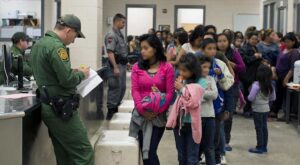Author::: Bagombeka Job
As we move further into the 21st century, the state of education in the USA in 2024 reflects a complex interplay of advancements, persistent challenges, and ongoing reforms. This article explores the current landscape of American education, examining key areas such as technological integration, equity and access, teacher workforce, and policy initiatives.
Technological Integration
In 2024, the integration of technology in education has reached unprecedented levels. The COVID-19 pandemic acted as a catalyst, accelerating the adoption of digital tools and remote learning platforms. Today, hybrid learning models are commonplace, blending traditional in-person instruction with online components. Schools have increasingly adopted Learning Management Systems (LMS) like Google Classroom and Canvas, facilitating better communication between teachers, students, and parents.
Artificial Intelligence (AI) and machine learning are being leveraged to personalize learning experiences. Adaptive learning technologies assess students’ strengths and weaknesses in real-time, offering customized resources to address individual needs. Virtual Reality (VR) and Augmented Reality (AR) have made significant inroads, providing immersive learning experiences in subjects like history, science, and even physical education.
However, the digital divide remains a critical issue. Despite progress, disparities in access to high-speed internet and modern devices persist, particularly in rural and economically disadvantaged areas. Efforts to bridge this gap continue, with federal and state governments investing in infrastructure and subsidizing technology for low-income families.
Equity and Access
Educational equity remains a focal point of discourse and policy. The pandemic highlighted and, in many cases, exacerbated existing inequalities. In response, 2024 has seen a concerted effort to address these disparities. Initiatives like universal pre-kindergarten, increased funding for Title I schools, and expanded access to Advanced Placement (AP) courses aim to level the playing field.
Additionally, there has been a significant push towards inclusive education. Schools are adopting more culturally responsive curricula, recognizing the diverse backgrounds of their students. Programs supporting English Language Learners (ELLs) and students with disabilities have received increased funding and resources.
Yet, challenges persist. Achievement gaps along racial and socioeconomic lines remain stubbornly wide. Policy-makers and educators are increasingly aware that addressing these issues requires not just educational reforms, but broader social and economic changes.
Teacher Workforce
The teaching profession in 2024 faces both opportunities and obstacles. On one hand, there is a growing recognition of the importance of teachers, leading to initiatives aimed at professional development and improved working conditions. Many states have implemented higher starting salaries and loan forgiveness programs to attract and retain quality educators.
Professional development has also evolved, with a focus on equipping teachers with skills to handle technological tools and diverse classrooms. Programs supporting mental health for teachers have become more prevalent, recognizing the high levels of stress and burnout that plague the profession.
However, teacher shortages continue to be a significant issue, particularly in subjects like STEM (Science, Technology, Engineering, and Mathematics) and in underserved areas. The profession struggles with an aging workforce and declining enrollment in teacher preparation programs. Efforts to address these shortages include alternative certification pathways and initiatives to make teaching a more attractive career choice.
Policy Initiatives
Education policy in 2024 reflects a blend of innovation and continuity. The Every Student Succeeds Act (ESSA) remains the cornerstone of federal education policy, with states having significant leeway in its implementation. Recent amendments have focused on increasing accountability for student outcomes while providing flexibility in meeting those standards.
School choice continues to be a contentious issue. Proponents argue that charter schools and voucher programs offer necessary alternatives to underperforming public schools, while critics contend they divert essential resources and undermine public education. The debate over school choice is likely to remain a significant aspect of the policy landscape.
Higher education is also undergoing significant changes. The Biden administration’s efforts to make community college tuition-free have seen mixed success at the federal level, but several states have adopted their own versions of this policy. Student loan debt remains a critical issue, with ongoing discussions about forgiveness programs and reforms to make higher education more affordable.
Conclusion
The state of education in the USA in 2024 is marked by significant advancements and persistent challenges. Technological integration has transformed learning experiences, but the digital divide continues to pose barriers. Efforts towards equity and access are making strides, yet achievement gaps persist. The teacher workforce is recognized and supported more than ever, though shortages and retention issues remain. Policy initiatives reflect a balance of innovation and the need for continuous improvement.
As the nation moves forward, the commitment to providing high-quality, equitable education for all students remains a priority. Addressing the multifaceted challenges of education requires a comprehensive approach that includes not only educational reforms but also broader societal changes. The future of American education hinges on the ability to adapt, innovate, and ensure that every student has the opportunity to succeed.
Author:: Bagombeka Job











































